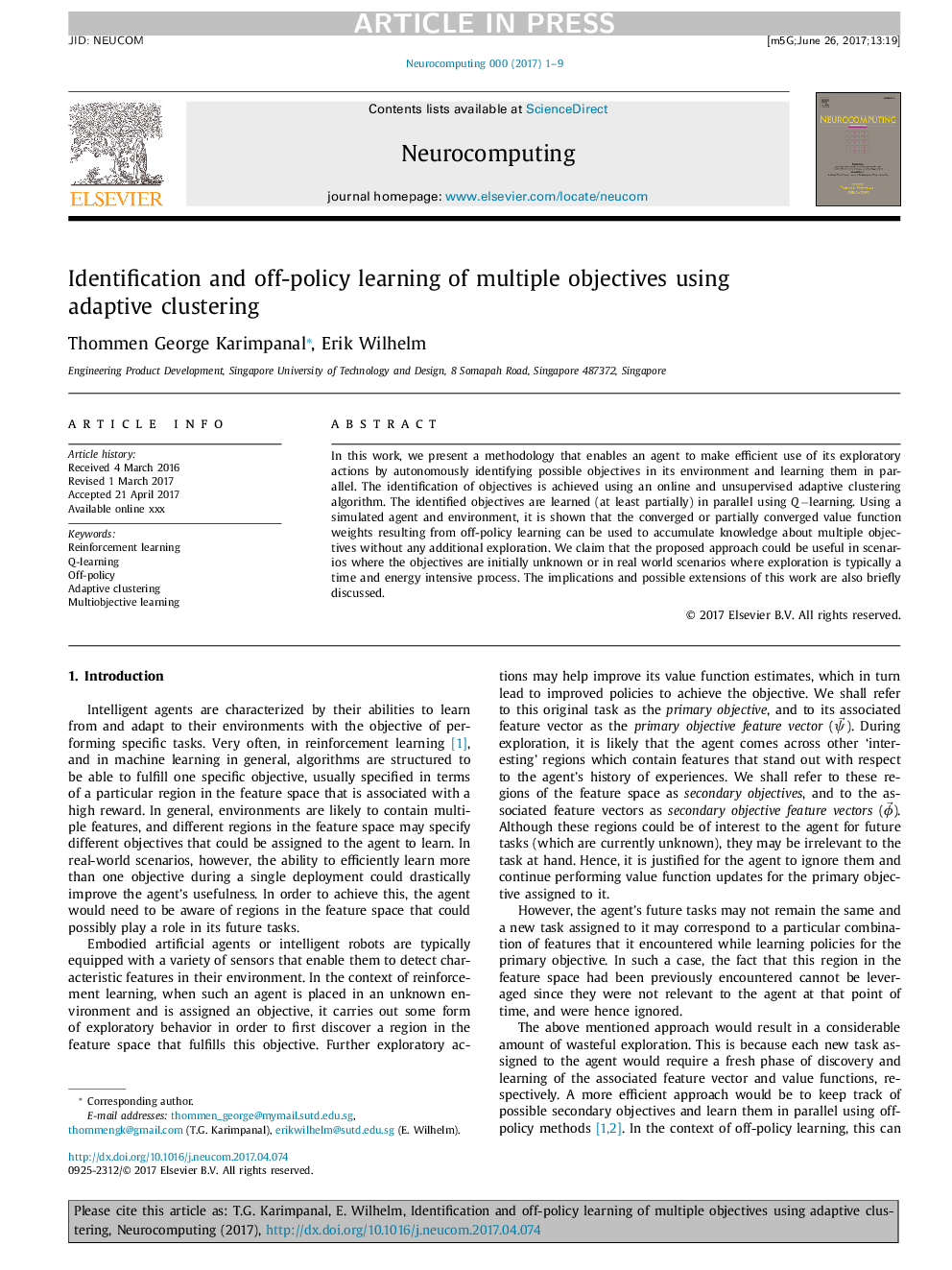| Article ID | Journal | Published Year | Pages | File Type |
|---|---|---|---|---|
| 4947081 | Neurocomputing | 2017 | 9 Pages |
Abstract
In this work, we present a methodology that enables an agent to make efficient use of its exploratory actions by autonomously identifying possible objectives in its environment and learning them in parallel. The identification of objectives is achieved using an online and unsupervised adaptive clustering algorithm. The identified objectives are learned (at least partially) in parallel using Qâlearning. Using a simulated agent and environment, it is shown that the converged or partially converged value function weights resulting from off-policy learning can be used to accumulate knowledge about multiple objectives without any additional exploration. We claim that the proposed approach could be useful in scenarios where the objectives are initially unknown or in real world scenarios where exploration is typically a time and energy intensive process. The implications and possible extensions of this work are also briefly discussed.
Related Topics
Physical Sciences and Engineering
Computer Science
Artificial Intelligence
Authors
Thommen George Karimpanal, Erik Wilhelm,
